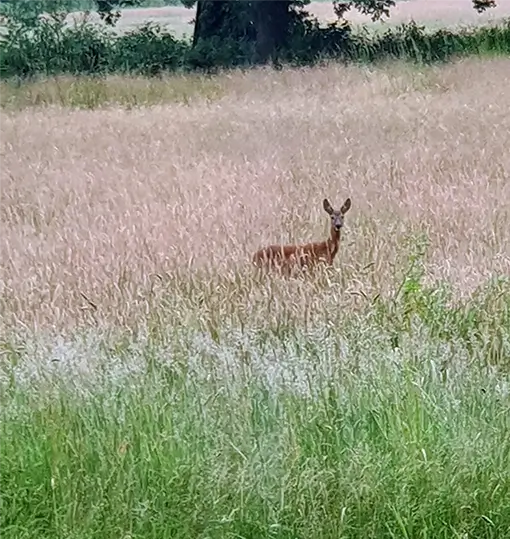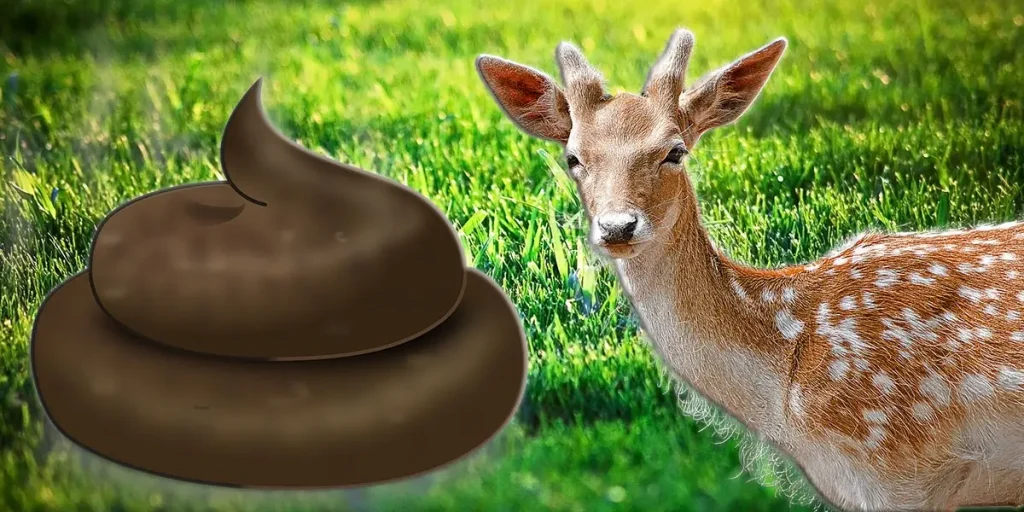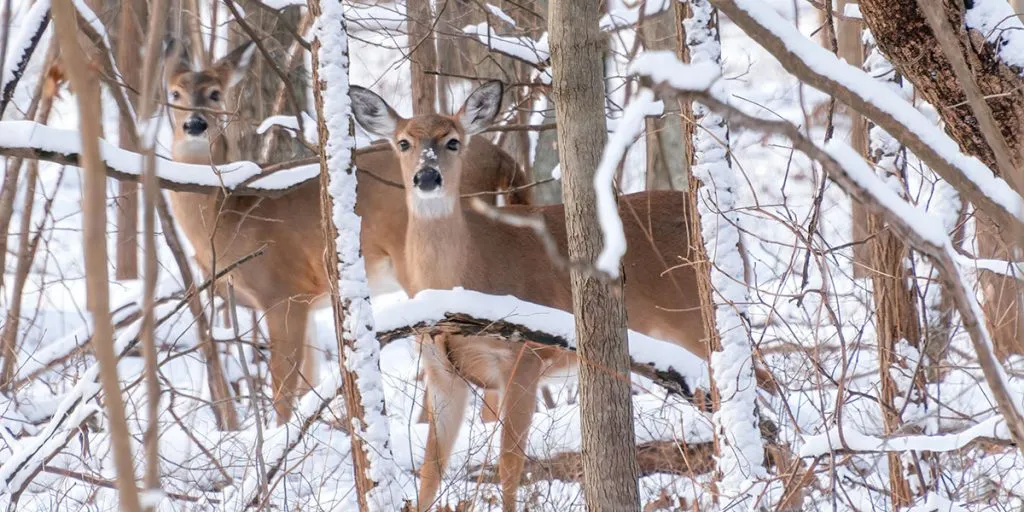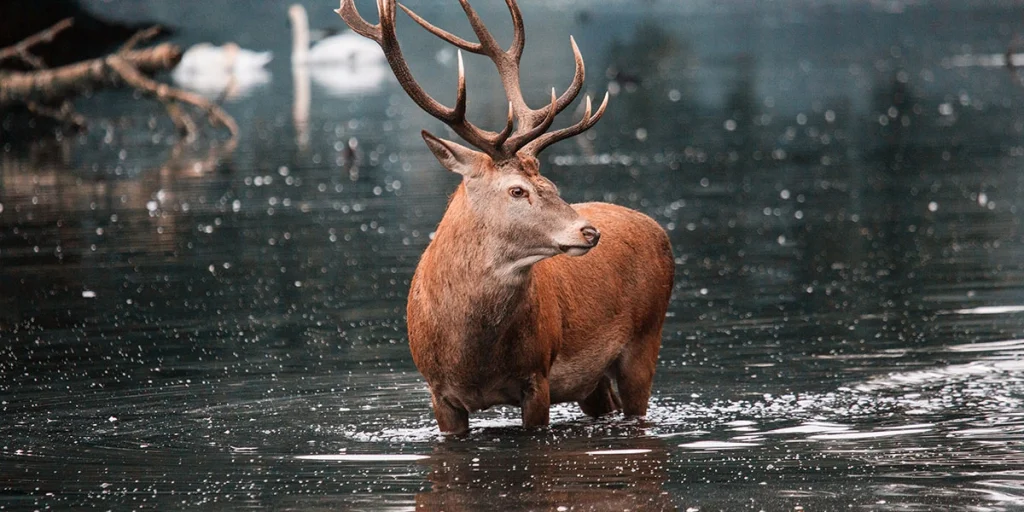Having a deer family visit your grass lawn is a blessing for more than one reason. The droppings these beautiful animals produce can be a great benefit for your backyard. There are many beneficial nutrients inside the poop of these animals that can help your grass be healthy.
Deer poop can serve as a great natural fertilizer for grass lawns. Droppings generally contain high levels of nitrogen, phosphorus, and potassium, which are essential nutrients for grass growth. Nitrogen promotes green color and faster foliage growth, phosphorus aids in root development, and potassium enhances overall plant health and resistance to disease.
Generally, it can be helpful to spread droppings out evenly over the entire lawn. This allows the fecal matter to act as a better fertilizer. Degrading due to rain and microbial activity, the slow release of nutrients inside deer poop will gradually continue. This allows nutrients to properly merge with the soil over time.
Deer droppings are full of nutrients
All deer species are herbivores and eat mainly plant-based materials (although sometimes deer will eat meat). Therefore, most droppings are filled with leaves, twigs, grass, but also nuts or seeds. The organic material is filled with helpful nutrients that can benefit grass growth.
Three main nutrients in deer poop allow the material to be used as fertilizer for your lawn:
- Nitrogen: Generally considered as the main ingrediënt to support plant growth. Will help grass blades grow faster and become greener.
- Phosphorus: Especially important for helping newer lawns establish their root systems. Helpful to promote growth if your grass does not grow. It can quickly be too much, so moderation is important. Otherwise, your lawn might become yellow.
- Potassium: Improves nutrient uptake and makes grass healthier, ensuring it will survive the winter better.
For a healthy distribution of nutrients, spreading out deer scat across the lawn will be key. If droppings accumulate in one location, this can be bad for the grass. Use a rake to spread and break up the droppings, avoid touching the material.
Too many nutrients in one location and too little in another: that’s not what you want. Spreading out the nutrients and providing a good balance is important. If the deer poop is spread out sufficiently, it has the potential to be a great natural fertilizer.

When to remove deer poop from a lawn
While deer poop is generally harmless for your lawn in small quantities, sometimes it makes sense to remove it. Here are some common situations in which it’s probably better to remove droppings from the grass:
- Excessive droppings: If there are a lot of deer in your local area, there can be a large build-up of droppings in your yard. This can be not that fun to look at, and potentially dangerous for any children playing in the grass. Before using the lawn, you might want to consider removing any excess deer poop from the grass.
- Uneven distribution: Deer can be creatures of habit. They are likely to particularly enjoy specific areas on your lawn. This can cause droppings to spread unevenly across the area. If you’d like to use the nutrients as a fertilizer, this can be a problem. It can cause differences in grass health or growth. In these cases, it can be a good idea to use a rake and redistribute the droppings throughout the lawn.
- Balancing out nutrient needs: While deer droppings can be a great natural fertilizer, using them as the sole source of nutrients for your lawn can be problematic. It can lead to what is known as overfertilization. Too much nitrogen buildup can turn grass yellow. Too much phosphorus can harm grass growth. Monitor soil conditions while using deer poop and check if you might need different nutrient sources.
The best way to remove deer poop from a grass lawn is to use a shovel and some sand, cat litter, or sawdust to neutralize the foul smell. Use the shovel to scoop up the droppings and place them in a plastic bag or bucket. You can choose to compost the droppings, bury them, or simply dispose of them in the garbage.
How to avoid deer droppings on your lawn
Keeping deer droppings completely out of your yard can be challenging, as this will largely depend on the behavior of deer in your area. However, here are some strategies that may help reduce the presence of deer and minimize the accumulation of their droppings in your yard:
- Deer repellents: As a deterrent, the best thing you can do is remove any potential food sources. Remove any fruits and nuts from sight, and make sure garbage is locked away safely (including the smell). Products like coyote urine smell or soapy smells might also help. Home owners can also try to startle deer with noise, water, or lights.
- Wildlife fencing: A good deer fence can be an effective deterrent against larger wildlife, but might be costly and not very nice to look at. A deer fence should be at least 8 feet tall. And remember that deer can definitely swim, so a barrier on the water might also be an idea.
- Sprinkler system: Motion-activated water sprinklers can be a good solution to scare off any large wildlife, including deer. Sprinklers can release a strong burst of water when they detect motion. This will startle and scare away deer very effectively.
- Motion LED lights: In the same ballpark as sprinklers are motion-detection LED lights. One negative about this deterrent is obvious: it works best when it’s dark. During moments of daylight, it’s less effective. Read more about when deer are most active here.
- Plant choices: Smart choices in terms of plants, shrubs, flowers, and vegetables can help deter deer and other wildlife. For example, try to choose plants with strong smells or thorns. This will make your yard less effective for the animals.
- Guard dog: A good guard dog will keep any sizeable wild animals far away from your yard. Allow your dog to protect your lawn. Even the scent alone can scare away some deer. Make sure to comply with local laws to avoid your guard dog being a nuisance to other people in the neighborhood.
Always remember that these methods are only repellents. They are not foolproof and will not completely stop a hungry deer from entering your property. However, combining two or more tips from the above list will decrease the likelihood of wild animals destroying your lawn with their droppings.



